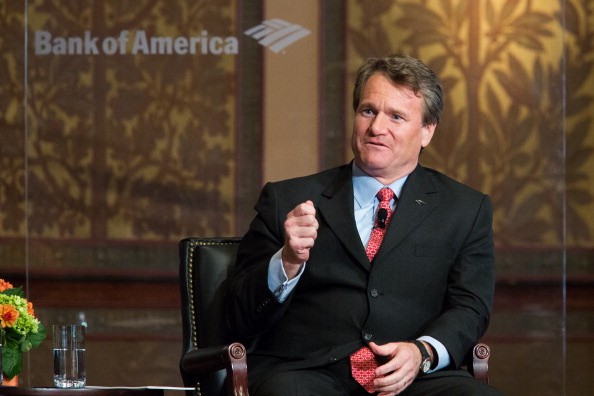More Stimulus Is Needed to Recover From COVID-19 Recession, Bank of America CEO Says
Brian Moynihan, Bank of America (BofA) CEO, said more stimulus is needed to help the economy recover from the coronavirus recession.
On Friday, Moynihan said that more economic stimulus checks are crucial prior to the economy recovering from the COVID-19 pandemic. The reaction came as the Federal Reserve released a survey that indicates previous rounds of stimulus spending to help American families get through the early stages of the downturn, as per Business Insider.
Since August 7, negotiations on the next round of the COVID-19 relief package, including the stimulus spending, have been stalled with a little prospect of getting anything done before the November presidential election.
Moynihan told Bloomberg: "You're back up to where 95 percent of the economy is back. We've got to help everybody else get across."
The BofA CEO pointed to the 0.6 percent increase in retail sales last month, along with the 0.9 percent increase in the previous month, despite the $600 supplemental unemployment benefit's expiration.
In late March and early April, when the economy shut down due to the pandemic, only half the lost jobs have come back. Therefore, there are almost 30 million Americans who are currently collecting jobless benefits.
Moynihan is urging lawmakers to approve the second round of paycheck protection financing. "What we need, I think, is pretty straightforward: You need more stimulus for the people," he said.

Moynihan noted that "a second bite at the apple" for PPP would help the economy fully recover.
"The idea of it recovering that last five percentage points tomorrow morning -- it's going to take a while to grind through that," he added.
Moynihan also said that more government support is needed to assist industries that are still struggling.
"What we need, I think, is pretty straightforward: You need more stimulus for the people," he noted. Local governments are among those that need help, as per Moynihan.
BofA's strategists said on Friday that the expectation for the coming of the next stimulus package by the November election is "fading." BofA's strategists had predicted earlier that the federal government would extend to at least $400 billion of aid to cities and states by the end of September.
Meanwhile, the Fed Survey indicated that families received lots of forms of assistance at the beginning of the coronavirus pandemic. These benefits came from the federal government and charitable organizations.
The survey showed that 77 percent of households said they were living comfortably or doing OK - two percent more than those who said they were doing well last October prior to the nation's pandemic's hit.
Pandemic had affected Americans unevenly, as per the indications of the survey. This can be seen with the low-income workers who suffer from most damage and more minority workers saying their employers are not taking enough precautions against the effect of the COVID-19.
From the $3.4 trillion Democrats sought in May, House Speaker Nancy Pelosi pushes it down to $2.2 trillion COVID-19 stimulus spending. But the White House and Senate Republicans are balking at the price tag though President Donald Trump has said that he is open to increasing the GOP's bid.
In a Bloomberg Television interview on Friday, Pelosi said she is willing to negotiate on the Democratic priorities for the new stimulus package to include aid for industries like restaurants and airlines.
Pelosi further noted that she is not backing away from the $2.2 trillion package proposal that she and the Democratic Senator leader Chuck Schumer proposed before negotiations with the White House last month.
Check these out:
Republicans' "Skinny" Relief Bill Failed: What are the Alternative Possibilities to Happen Next?
Covid-19 Relief Package: Families Could Get as Much as $6,000 If Deal Can Finally Be Struck
Next Stimulus Payments: Who Could be Eligible Dependents and their Importance
Subscribe to Latin Post!
Sign up for our free newsletter for the Latest coverage!
© 2026 Latin Post. All rights reserved. Do not reproduce without permission.















